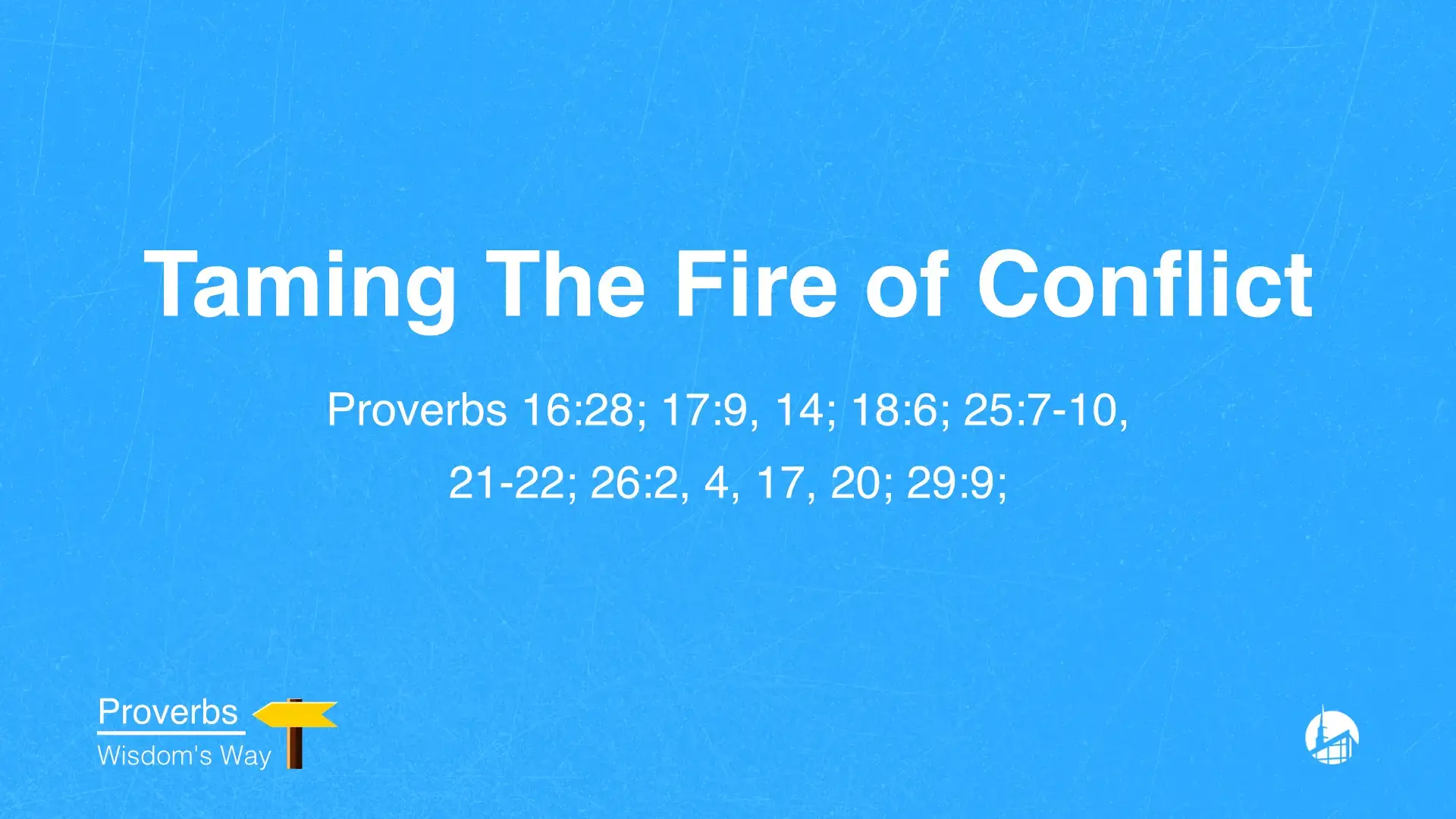Conflict is an inevitable part of life, whether it flares up at the dinner table, in the workplace, or even within a church community. Like a spark in dry grass, a single careless word or misunderstanding can ignite a destructive blaze, damaging relationships, reputations, and even ministries. The book of Proverbs provides timeless wisdom for taming the fire of conflict, guiding us to handle disputes with grace and godliness. In this sermon, Pastor Léveillé draws from key passages in Proverbs to outline three essential principles: guarding our words, stopping foolishness before it escalates, and handling conflict wisely to restore peace.
We Must Guard Our Words
Words hold immense power, capable of either quenching conflict or fuelling it. Proverbs 16:28 warns, “A froward man soweth strife: and a whisperer separateth chief friends.” The term “froward” describes someone who twists truth to create division, delighting in stirring up trouble. Similarly, Proverbs 17:9 contrasts two approaches: “He that covereth a transgression seeketh love; but he that repeateth a matter separateth very friends.” Gossip and talebearing act like fuel on a fire, while choosing to cover a transgression with forgiveness seeks love and peace. Proverbs 26:20-21 reinforces this: “Where no wood is, there the fire goeth out: so where there is no talebearer, the strife ceaseth. As coals are to burning coals, and wood to fire; so is a contentious man to kindle strife.” When we refuse to spread rumours or rehearse offences, we starve the fire of conflict. As believers, we are called to be peacemakers, speaking truth with grace and extinguishing strife rather than igniting it.
Stop Foolishness Before It Starts Conflict
Conflict often begins small, like a crack in a dam, but can quickly spiral out of control if not addressed early. Proverbs 17:14 advises, “The beginning of strife is as when one letteth out water: therefore leave off contention, before it be meddled with.” The imagery of water escaping a dam underscores the urgency of addressing disputes while they are manageable. Waiting too long or involving others unnecessarily can escalate a situation beyond repair. Proverbs 18:6 adds, “A fool’s lips enter into contention, and his mouth calleth for strokes.” A fool, described as reckless and hardened, provokes conflict with careless words. Proverbs 26:17 offers a vivid warning: “He that passeth by, and meddleth with strife belonging not to him, is like one that taketh a dog by the ears.” Inserting ourselves into conflicts that do not concern us is like grabbing a wild animal, inviting harm. Wisdom calls us to resolve disputes early, avoid provocation, and steer clear of quarrels that are not ours.
Handle Conflict Wisely to Restore Peace
Biblical wisdom teaches us to handle conflict with discretion and kindness, aiming to restore peace rather than perpetuate division. Proverbs 25:8-10 cautions, “Go not forth hastily to strive, lest thou know not what to do in the end thereof, when thy neighbour hath put thee to shame. Debate thy cause with thy neighbour himself; and discover not a secret to another: lest he that heareth it put thee to shame, and thine infamy turn not away.” Public disputes can spiral unpredictably, damaging reputations, so private resolution is always preferable. Proverbs 25:21-22 offers a surprising strategy: “If thine enemy be hungry, give him bread to eat; and if he be thirsty, give him water to drink: For thou shalt heap coals of fire upon his head, and the LORD shall reward thee.” This act of kindness, far from seeking harm, provides for an enemy’s needs, potentially leading to reconciliation. Finally, Proverbs 26:2 reassures us, “As the bird by wandering, as the swallow by flying, so the curse causeless shall not come.” False accusations and slander will not ultimately prevail, so we can trust God to vindicate us rather than chasing every rumour.
Conclusion
The wisdom of Proverbs calls us to be peacemakers in a world prone to conflict. By guarding our words, we prevent strife from igniting. By addressing foolishness early, we keep disputes from escalating. And by handling conflict with kindness and discretion, we reflect the heart of our Saviour, the Prince of Peace. The examples of Abigail’s diplomacy and Joseph’s forgiveness remind us that peace is not won through pride or vengeance but through humility and trust in God. As we face conflicts in our homes, workplaces, or churches, let us pray for the grace to quench the fires of strife with love, wisdom, and the power of the Holy Spirit. May we embody the truth of Matthew 5:9, “Blessed are the peacemakers: for they shall be called the children of God.”












